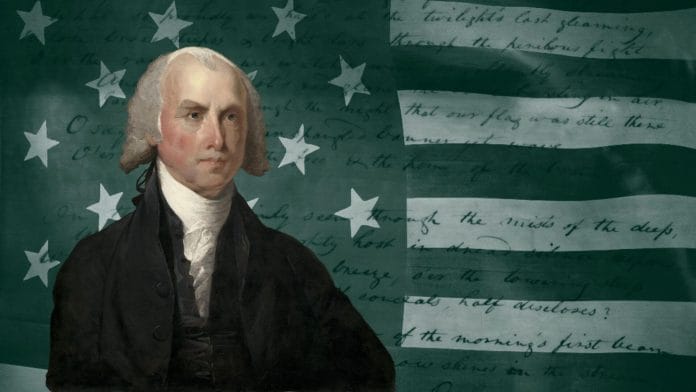In the quest for Texas independence, the words we choose to use are of utmost importance. They shape our narrative, influence perceptions, and can even sway opinions. Precision is particularly crucial in our use of the terms “federal” and “national”. Though often used interchangeably in everyday conversation, these words have distinct meanings that hold significant implications for the TEXIT movement.
Understanding the Terms: Nation, State, and Country
The terms “nation,” “state,” and “country” are often used interchangeably, but they each have distinct meanings. A “nation” refers to a group of people with a common culture, history, or language. A “state” is a political entity with defined borders and sovereignty, while a “country” generally refers to a specific geographic area. The United States, as it was originally conceived, is a federation of states, not a single nation or a monolithic country.
James Madison’s Perspective
James Madison, one of the Founding Fathers of the United States of America and a key architect of the U.S. Constitution, was explicit about this distinction. In The Federalist Papers, Madison argued that the U.S. Constitution established a federal government, not a national one. He saw the Constitution as a compact between states, creating a central government with certain designated powers while reserving the remainder to the states. This federal structure was designed to protect the sovereignty and rights of individual states, a principle Madison believed was essential to the Union’s success.
On examining the first relation, it appears on one hand that the Constitution is to be founded on the assent and ratification of the people of America, given by deputies elected for the special purpose; but on the other, that this assent and ratification is to be given by the people, not as individuals composing one entire nation; but as composing the distinct and independent States to which they respectively belong. It is to be the assent and ratification of the several States, derived from the supreme authority in each State, the authority of the people themselves. The act therefore establishing the Constitution, will not be a national but a federal act.
That it will be a federal and not a national act, as these terms are understood by the objectors, the act of the people as forming so many independent States, not as forming one aggregate nation, is obvious from this single consideration that it is to result neither from the decision of a majority of the people of the Union, nor from that of a majority of the States. It must result from the unanimous assent of the several States that are parties to it, differing no other wise from their ordinary assent than in its being expressed, not by the legislative authority, but by that of the people themselves. Were the people regarded in this transaction as forming one nation, the will of the majority of the whole people of the United States, would bind the minority; in the same manner as the majority in each State must bind the minority; and the will of the majority must be determined either by a comparison of the individual votes; or by considering the will of a majority of the States, as evidence of the will of a majority of the people of the United States. Neither of these rules has been adopted. Each State in ratifying the Constitution, is considered as a sovereign body independent of all others, and only to be bound by its own voluntary act. In this relation then the new Constitution will, if established, be a federal and not a national Constitution.
James Madison, Federalist, no. 39, 253–57
Implications for the TEXIT Movement
This distinction between “federal” and “national” is not merely academic quibbling—it’s at the heart of what the TEXIT movement stands for. When we refer to all things federal as “national,” we risk blurring the lines between the state and federal spheres. This can inadvertently reinforce the narrative of a single, indivisible nation rather than a federation of states, each with its own identity, rights, and powers.
As TEXIT supporters, we believe in the sovereignty of Texas and its right to determine its destiny. By using the term “federal” accurately, we underscore the fact that Texas is not just a subordinate entity in a monolithic nation but a state with its unique rights within a federal system.
The Power of Language
Language is a powerful tool. It shapes how we understand the world and how others perceive our message. By choosing our words carefully, we can help to shift the narrative and emphasize the principles that underpin our cause. The distinction between “federal” and “national” is more than just semantics—it reflects our belief in the sovereignty of Texas and the rights of states within a federal system.
For instance, it’s not a “national anthem”—it’s a “federal anthem.” It’s not “national news”—it’s “federal news.” By making these small but significant changes in our language, we can challenge the prevailing narrative and remind people of the true nature of the federal system, our place within it, and how broken that relationship truly is.
The Path to Success
Aligning our language with our political, cultural, and economic values is not just a matter of semantics—it’s a crucial part of our path to independence. Every word we use, every term we choose, sends a message about who we are and what we stand for. By using precise and accurate language, we can ensure that our message is clear, consistent, and compelling. This is not just about being technically correct—it’s about asserting our identity, affirming our values, and advancing our cause. As we continue our fight for Texas independence, let’s make sure our language reflects the strength of our conviction.

